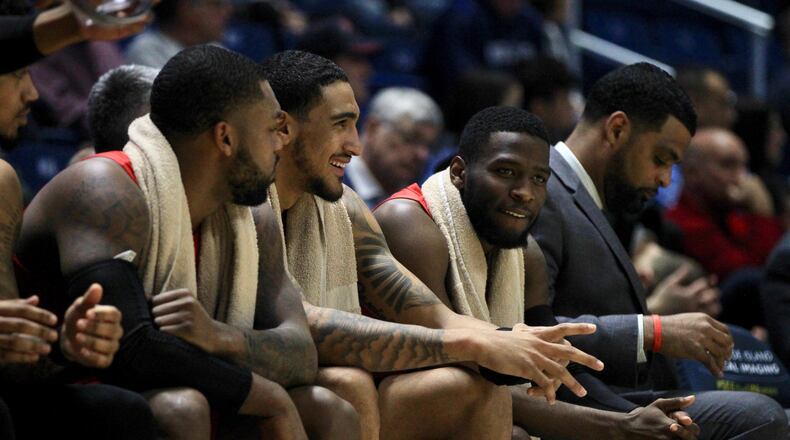“It’s really hard,” Bodensteiner said. “I have not seen anyone else submit a complete model. I would love it for all the experts out there to hand us a model that thinks of everything.”
» DAYTON RECRUITING: Challenging time for coaches
Bodensteiner said she was a transactional attorney who worked on the Boeing and McDonnell Douglas merger earlier in her career, and even that doesn’t compare to the complicated nature of this issue. However, she said she’s a optimist and expects it all to work out in the end.
“Remember with sports betting when we were having 50 different state laws and we were all in a massive panic?” she said. “So far games are still continuing on with or without sports betting. Remember when students could work? Remember when we made them able to be employees? Everything was just going to change because they could have a job. Things work out. I’m relatively optimistic. Will it be challenging? I love a challenge. I think it’s going to be OK.”
The news comes too late for many athletes. Dayton Flyers star Obi Toppin certainly could have benefited last season. He could have promoted products and cashed in on his status as the nation’s top player. He’ll eventually get to do that in the NBA, of course, but didn’t have the option when he was in college.
LSU quarterback Joe Burrow, now the top draft pick of the Cincinnati Bengals, and Zion Williamson, a star for Duke two seasons ago, are other recent examples of high-profile athletes who could have benefited from the freedom the NCAA will soon give to athletes.
» SCHEDULING NEWS: Dayton to play in Hoopsgiving event
Clunie said the athletes he has talked to from around the A-10 welcome the change.
“I think they’re appreciative,” Clunie said. “I think it provides so many unique opportunities for scholar-athletes that they should and could be able to take advantage. If I’m funny and I want to go tell jokes at a comedy club in Charlotte, you should be able to do that, right?”
Bodensteiner sees the change as something that could be an equalizer for women athletes.
“Our world of marketing is sexist and biased, and men make more in every aspect of everything we do,” she said, “but there’s some really neat opportunities for women who don’t have the same professional opportunities in their sports in most cases to really take advantage of their peak while they are student athletes.”
The new freedom coming to the athletes isn’t without restrictions. The NCAA will not allow athletes to use the logos or trademarks of their schools in any ads they do for business or on social media or in personal appearances. The NCAA also will regulate agents and advisors.
“We know that there’s going to be a significant enforcement process and accountability and monitoring,” McGlade said, “but on the flip side of it, from the A-10’s perspective, we’re going to do what we can every step of the way to make sure that our institutions or coaches or our student athletes are educated as to the new opportunities now that could be open and available to them.”
About the Author

